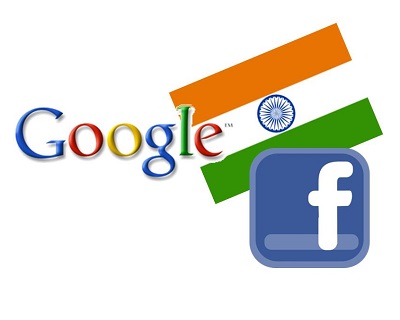InMobi, the global advertising giant, is working on giving the Silicon Valley companies a run for their money.
Eight years ago, InMobi was founded as an advertising company, which has since placed a considerable focus on the mobile ad ecosystem and has grown into the third largest player in an extremely intense sector of the marketing industry.
At the moment, only Google and Facebook are ahead of InMobi when it comes to the mobile ad space.
The company was first started by three graduates of the Indian Institute of Technology, Kanpur, a prestigious postsecondary education institution. It is located in Bangalore, India and has managed to take off at a rate that has been explosive enough to pass everyone along the way except Google and Facebook. According to the chief executive of mobile advertising at InMobi, Naveen Tewari, “I am a very proud Indian and I want to see our country succeed.”
Among the goals of the founders of the company was to become major mobile ad players from within India.
 Tewari stated that “I thought if I could do something from here that can be successful, maybe I’ll have a small role in creating great companies out of India that can compete with the iconic companies in Silicon Valley.”
Tewari stated that “I thought if I could do something from here that can be successful, maybe I’ll have a small role in creating great companies out of India that can compete with the iconic companies in Silicon Valley.”
Today, there are 24 different InMobi offices located in 17 countries around the world. It is the employer of over 900 people. In 2014, it was behind the posting of approximately 720 mobile advertisements on the smartphones of over one billion mobile device users. The goal of the company is to deliver mobile ads to 2.5 billion people per day. It aims to achieve this goal within the next few years.
Much of the growth of this mobile advertising company has been credited to the massive penetration of smartphones and tablets worldwide. Enders Analysis director of digital media, Ian Maude, pointed out that “InMobi creates audience networks for advertisers to reach through mobile devices.”
Therefore, companies and brands hire app makers and other forms of digital publishers in order to be able to use proper mobile ad strategies to connect with their audiences over their handsets.
JD and Tencent will be expanding their partnership in order to improve mobile marketing
JD.com, one of China’s largest online retailers, and Tencent, a prominent provider of Internet services in China, have announced that they will be expanding their partnership in order to transform mobile marketing throughout the country. A growing number of consumers with smartphones and tablets has lead to a higher demand for new marketing solutions in order to effectively engage mobile consumers. Retailers are finding it somewhat difficult to catch the attention of mobile shoppers, especially those that are becoming more involved in mobile commerce.
China is becoming a very powerful mobile commerce market
China has become a leading mobile commerce market, with many consumers showing favor for shopping with their smartphones. New mobile marketing solutions are needed in order to ensure that retailers can continue to engage these consumers. JD and Tencent will be exploring new avenues to leverage Tencent’s social platforms in order to create more favorable marketing solutions. Together, the companies intend to make use of the big-data resources that Tencent has access to, as well as the e-commerce information that JD has collected over the years.
New marketing solutions could help retailers engage mobile consumers
 Through the expanded partnership, JD and Tencent intend to develop new online tools that will ensure that retailers can target mobile consumers in a more dynamic fashion. Mobile marketing has proven to be an effective way to engage new generations of consumers that are becoming more reliant on smartphones and tablets. These devices have become powerful tools in changing how consumers shop online and in the physical world. In China, retailers have seen the rise of mobile commerce, which is pressuring them to become more mobile-centric.
Through the expanded partnership, JD and Tencent intend to develop new online tools that will ensure that retailers can target mobile consumers in a more dynamic fashion. Mobile marketing has proven to be an effective way to engage new generations of consumers that are becoming more reliant on smartphones and tablets. These devices have become powerful tools in changing how consumers shop online and in the physical world. In China, retailers have seen the rise of mobile commerce, which is pressuring them to become more mobile-centric.
Mobile marketing expected to thrive in China
As mobile marketing becomes more robust in China, many more consumers are expected to begin participating in mobile commerce. New marketing solutions may make it easier for retailers to connect with consumers. Through mobile marketing, these companies can offer consumers better deals and shopping opportunities that they may not have had access to in the past.
 Tewari stated that “I thought if I could do something from here that can be successful, maybe I’ll have a small role in creating great companies out of India that can compete with the iconic companies in Silicon Valley.”
Tewari stated that “I thought if I could do something from here that can be successful, maybe I’ll have a small role in creating great companies out of India that can compete with the iconic companies in Silicon Valley.”
 Through the expanded partnership, JD and Tencent intend to develop new online tools that will ensure that retailers can target mobile consumers in a more dynamic fashion. Mobile marketing has proven to be an effective way to engage new generations of consumers that are becoming more reliant on smartphones and tablets. These devices have become powerful tools in changing how consumers shop online and in the physical world. In China, retailers have seen the rise of mobile commerce, which is pressuring them to become more mobile-centric.
Through the expanded partnership, JD and Tencent intend to develop new online tools that will ensure that retailers can target mobile consumers in a more dynamic fashion. Mobile marketing has proven to be an effective way to engage new generations of consumers that are becoming more reliant on smartphones and tablets. These devices have become powerful tools in changing how consumers shop online and in the physical world. In China, retailers have seen the rise of mobile commerce, which is pressuring them to become more mobile-centric.